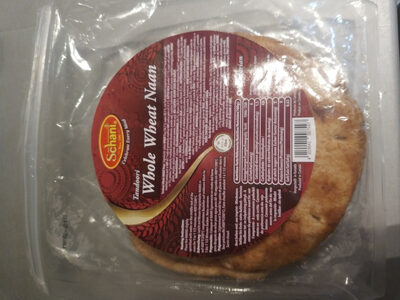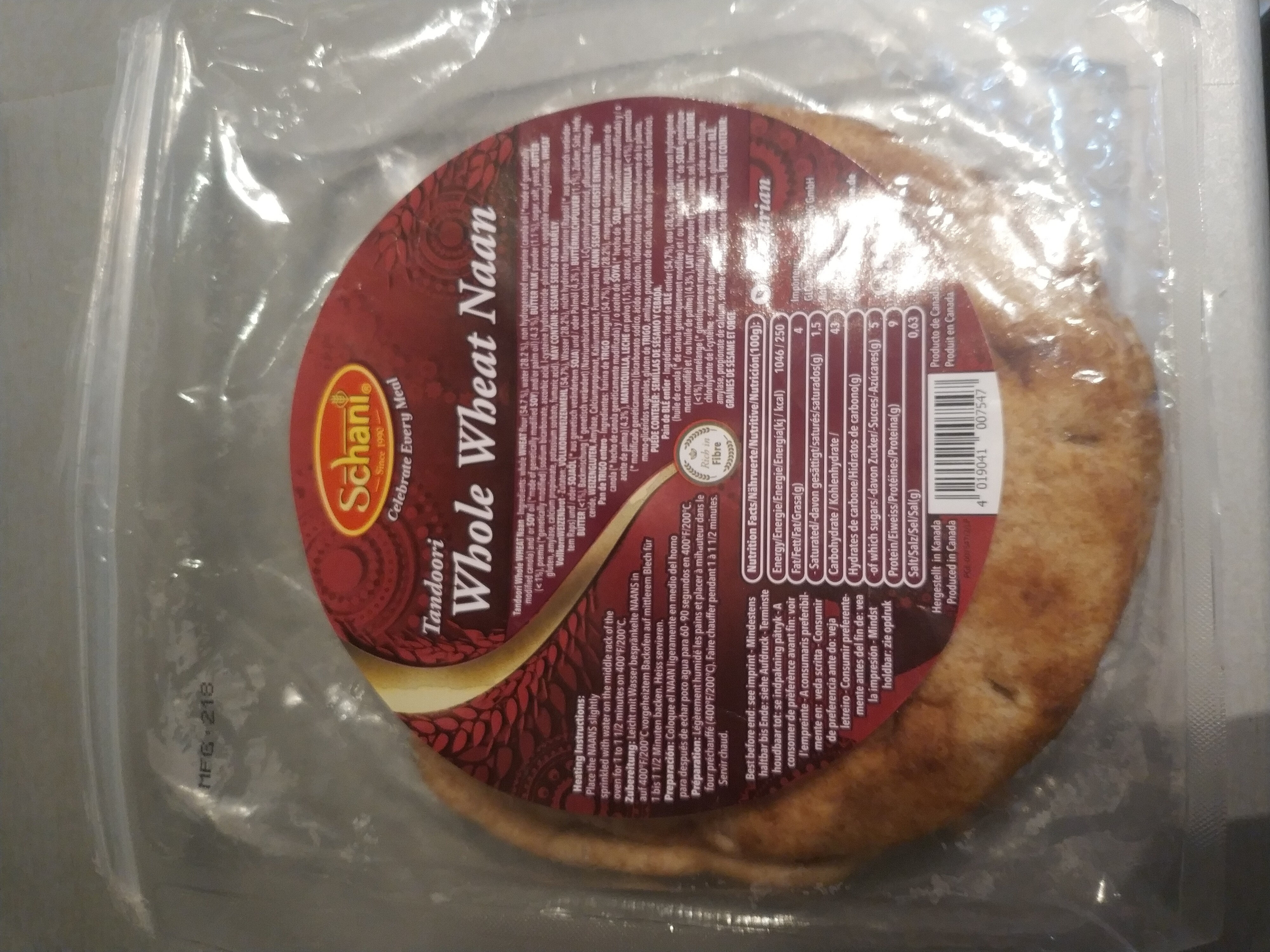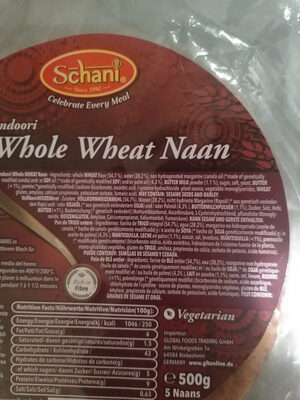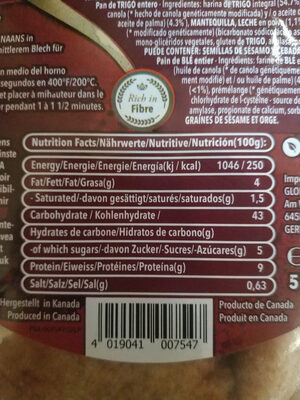Tandoori Whole Wheat Naan - Schani - 500g
This product page is not complete. You can help to complete it by editing it and adding more data from the photos we have, or by taking more photos using the app for Android or iPhone/iPad. Thank you!
×
Barcode: 4019041007547 (EAN / EAN-13)
Quantity: 500g
Packaging: Plastic
Brands: Schani
Categories: Plant-based foods and beverages, Plant-based foods, Cereals and potatoes, Breads, Flatbreads, Special breads, Naans
Labels, certifications, awards: Vegetarian
Manufacturing or processing places: Canada
Countries where sold: Luxembourg
Matching with your preferences
Environment
Packaging
Transportation
Threatened species
Report a problem
Data sources
Product added on by openfoodfacts-contributors
Last edit of product page on by packbot.
Product page also edited by off.95e560c57ad574e7cae97018aa0e895.
If the data is incomplete or incorrect, you can complete or correct it by editing this page.









